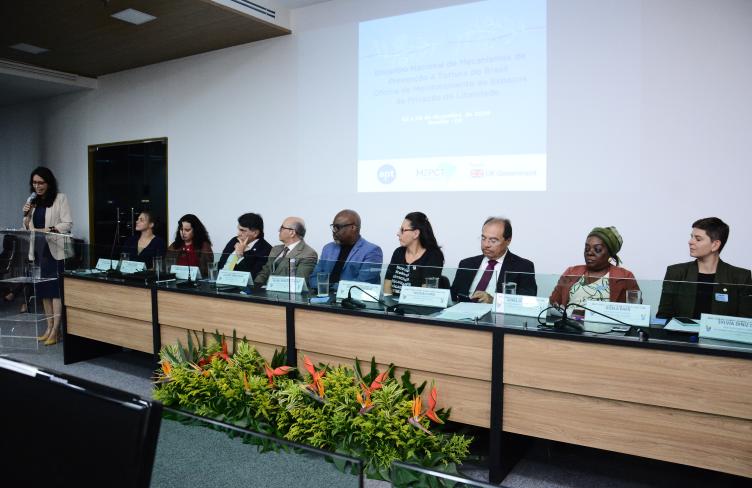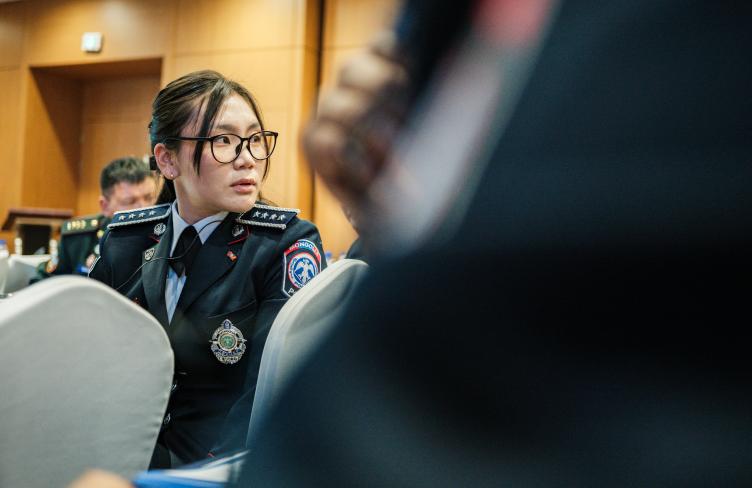
It was little more than a year and a half ago that the Nelson Mandela Rules (otherwise known as the revised UN Standard Minimum Rules for the Treatment of Prisoners) were adopted by the UN General Assembly, after years of complex negotiations by States and experts around the world. These rules set out minimum standards that should be applied in prisons from admission to release.
First adopted in 1957, work started in 2010 to update the rules to reflect developments in penal policy and human rights. To honour the legacy of Nelson Mandela and his 27 years in prison, the final document was named after him.
Today is Nelson Mandela International Day and the UK National Preventive Mechanism (NPM) – the body responsible for preventing ill treatment in the UK – takes the opportunity to share how it is working with the Nelson Mandela Rules in its day to day work monitoring detention in the UK.
In case you don’t know about the UK NPM, we are 21 separate bodies working together across the four nations of the UK to strengthen the protection of people in detention through independent monitoring. We are made up of inspectorates and lay visiting bodies and we visit, monitor and inspect mental health detention, prisons, police stations, court custody and escorts, military and immigration detention.
In January this year, we published comprehensive guidance on monitoring all forms of isolation in detention. This followed on from our work in 2014-15 examining isolation and solitary confinement across all detention settings. One of the most significant advances achieved in the Nelson Mandela Rules was the inclusion of a clear definition of solitary confinement, and we capture this in our guidance.
Individual NPM members have also made important efforts to use the Nelson Mandela Rules to strengthen their approach to human rights in detention.
The Independent Monitoring Boards (IMBs) (volunteer visiting bodies attached to all prisons in England and Wales) recently published its first National Monitoring Framework, which was informed by the Nelson Mandela Rules.
Importantly, the IMBs attend segregation reviews on a regular basis, and can raise immediate concerns if they believe a prisoner’s segregation is not fair or humane. IMBs often identify concerns about the regime in segregation units, which as a result of staffing constraints can mean prisoners don’t get showers or phone calls every day, and that they only get half an hour of exercise. The IMBs report that it is not uncommon for them to find segregated prisoners locked up for 23 hours a day, with little in the way of meaningful human contact. According to the new Nelson Mandela Rules definition, this means they are in solitary confinement. IMBs record and report on these situations, taking their concerns all the way up to Ministers if necessary.
For HM Inspectorate of Prisons for Scotland (HMIPS), the adoption of the Nelson Mandela Rules coincided with the beginning of work to put into practice an ambitious new scheme of Independent Prison Monitors, who have a legal duty to visit every prison in Scotland every week to monitor treatment and conditions. This meant HMIPS could prioritise incorporating the Nelson Mandela Rules into the core training for all new IPM volunteers, which helped demonstrate how human rights standards inform their practical work in prisons.
HMIPS is also currently reviewing the quality indicators that support their ten Standards for Inspecting and Monitoring Prisons in Scotland, which form the basis for all of their inspections and visits. The Nelson Mandela Rules are helping HMIPS to inform this review.
The Scottish Human Rights Commission (SHRC) uses the Nelson Mandela Rules as a tool for their work on prison inspections in Scotland. For SHRC, the Rules are an important benchmark that they use to guide the development and scrutiny of prison legislation and policy in Scotland, as well as their work reporting to international treaty bodies.
HM Inspectorate of Prisons (England and Wales) has been busy over the last year reviewing its Expectations (inspection criteria) for adult male prisons. These guide all of HMIP’s inspections and are underpinned by human rights standards. The review involved a comprehensive scoping exercise to identify relevant and new standards, including the Nelson Mandela Rules. As a result, HMIP will inspect using the definition of solitary confinement (see Expectation 66) and many other aspects of the Nelson Mandela Rules. These will also apply to inspections in Northern Ireland with NPM member Criminal Justice Inspectorate Northern Ireland.
There is plenty more that the UK NPM can do to make sure its work meets the standards set out in the Nelson Mandela Rules (we can also do this outside our monitoring activities through commenting on policies and raising awareness), but little more than a year and a half since they were adopted, we think we’ve made a good start!
Louise Finer, UK National Preventive Mechanism Coordinator


